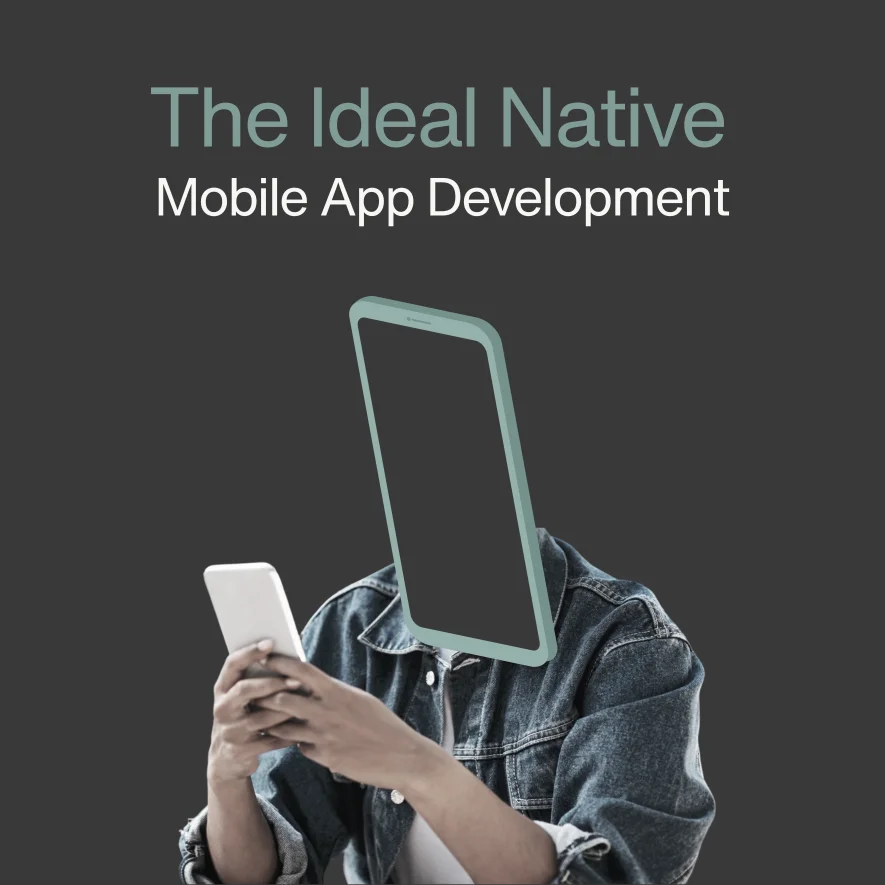The New Era of AI in 2025: From Gemini 3 to Creative AIs
Learn about the best AI tools for 2025, including Nano...
We use cookies for our website to give you the most relevant experience by remembering your preferences. By clicking “accept”, you consent to use of ALL the cookies
This website uses cookies to improve your experience while you navigate through the website. Out of these, the cookies that are categorized as necessary are stored on your browser as they are essential for the working of basic functionalities of the website. We also use third-party cookies that help us analyze and understand how you use this website. These cookies will be stored in your browser only with your consent. You also have the option to opt-out of these cookies. But opting out of some of these cookies may affect your browsing experience.
Necessary cookies are absolutely essential for the website to function properly. These cookies ensure basic functionalities and security features of the website, anonymously.
| Cookie | Duration | Description |
|---|---|---|
| cookielawinfo-checkbox-functional | 11 months | This cookie is set by GDPR Cookie Consent plugin. The cookie is used to store the user consent for the cookies in the category “Analytics”. |
| cookielawinfo-checkbox-functional | 11 months | The cookie is set by GDPR cookie consent to record the user consent for the cookies in the category “Functional”. |
| cookielawinfo-checkbox-necessary | 11 months | This cookie is set by GDPR Cookie Consent plugin. The cookies is used to store the user consent for the cookies in the category “Necessary”. |
| cookielawinfo-checkbox-others | 11 months | This cookie is set by GDPR Cookie Consent plugin. The cookie is used to store the user consent for the cookies in the category “Other. |
| cookielawinfo-checkbox-performance | 11 months | This cookie is set by GDPR Cookie Consent plugin. The cookie is used to store the user consent for the cookies in the category “Performance”. |
| viewed_cookie_policy | 11 months | The cookie is set by the GDPR Cookie Consent plugin and is used to store whether or not user has consented to the use of cookies. It does not store any personal data. |
Functional cookies help to perform certain functionalities like sharing the content of the website on social media platforms, collect feedbacks, and other third-party features.
Performance cookies are used to understand and analyze the key performance indexes of the website which helps in delivering a better user experience for the visitors.
Analytical cookies are used to understand how visitors interact with the website. These cookies help provide information on metrics the number of visitors, bounce rate, traffic source, etc.
Advertisement cookies are used to provide visitors with relevant ads and marketing campaigns. These cookies track visitors across websites and collect information to provide customized ads.
Other uncategorized cookies are those that are being analyzed and have not been classified into a category as yet.
Cyberia Tech, Inc. respects your privacy. This Privacy Policy explains how we collect, use, and share your information. By using our services, you agree to this policy. If any other agreements conflict with this Privacy Policy, the terms of those agreements prevail.
Cyberia Tech complies with the EU-US and Swiss-US Privacy Shield Frameworks for handling personal data from the EEA, UK, and Switzerland. In case of any conflict, the Privacy Shield Principles prevail. Learn more at Privacy Shield. Key Definitions
Information linked to an individual, transferred from the EEA, UK, or Switzerland to the U.S.
Data revealing race, religion, health, sexual orientation, and similar categories.
Effective Date: [ 2026 / 01 / 22 ]
Welcome to The Cyberia Tech ! By accessing or using our website or services, you agree to
comply with and be bound by these Terms of Use and our Privacy Policy. If you do not agree with
these terms, please do not use our Services.
Loading
0 %

When we talk about native app development, we automatically think about its ideal foundation. Although it is widely assumed that native mobile app development is expensive, it has a massive potential customer base all over the world.
The advantages of this development have a lot to offer in terms of customer retention. This post will explain what this development is all about.
What exactly is native application development? How effective is it? Is there any disadvantage?
If you are unsure about how to proceed with this app development, we will advise you on the best course of action.
Table of Contents
Technically, native app development refers to creating a mobile app on a single platform rather than both.
You can’t deny how competitive the mobile app industry is. You choose which development makes sense to give you a name and make your brand or business more profitable.

This kind of mobile app development is specifically developed for a particular operating system in different mobile app frameworks and languages. So, users will get the apps on two different platforms App Store or Google Play.
If it is an Android platform, the languages are specified with Java or Kotlin, and if you plan for iOS, it is Objective C or Swift.
You will get some information about these programming languages in the following parts. However AppPresser is the other option to build a simple native app without coding with WordPress Mobile Plugin.
You can’t deny that this advancement has a wide range of benefits. Overall, the positive aspects will outweigh the cons. Let’s see the positive factors:
On top of the positive points, the performance is the pioneer in native application development.
No matter which app you are opening, it runs, loads, take action and make changes with fewer bugs. You can even have a higher-quality e-commerce mobile app for online shopping.
How is this even possible? Simply said, the app code runs on the operating system’s top level.
This ability will also grant direct access to device hardware and other features such as the camera, GPS, microphone, and accelerometer.
Tap on the link to read more about the Native app development and its difference from Hybrid apps.

That’s why you will see better performance over the games and complex 3D animations and graphics in some of the popular games like Call of Duty or Nier Reincarnation.
Besides, you can have heavy processor applications like photo filters or video editing with native apps. The other thing is that you are focusing only on one codebase.
By having the latest software development kit SDK and choosing the best backend technology for mobile apps, your hands are open to finding out where the bugs are and fixing them straightforwardly in the deep backend in app development.
2. No need to have the Internet all the time
Without the internet, smartphones have nothing to say. However, this advancement has made us work in an offline mode, and if you want to see fresh specific data, activate that button.
This choice is an Azure SDK feature called “offline sync for the mobile app. This capability is available in HTML5 hybrid development.
3. Special UI UX elements
Thanks to having unique UI UX options in mobile app designing, users will have a better experience in mobile frontend development. Think about the main navigation.
In iOS, it’s a row at the bottom of the screen. It has ready templates, and native SDKs have automatically adjustable features like iOS’s Auto Layout.
4. Security matters
What truly matters is a concern for security over hybrid or cross-platform software. Native development has a specific feature, already proven security features, faster coding, and it can detect more critical bugs.
5. Keep things simple
It is a trick of this kind of development to focus only on one thing, to show better features and powerful performance rather than hybrid or cross-platform development.
6. A better user experience
Consider how you would like to focus on your business or even what is your market goal? The answer is providing a wide range of user interactives.
On the other hand, the challenges are lightly-built during the process. Here are some problems that you may face:
The downloading process and setting each step to get the app from the stores could be a bit frustrating like iOS which always asks your Apple ID.
The other thing is that you need to hire two different developers. One for iOS and the other for Android for separate coding.
But as previously said, it is not cheap as chips! Yes. The Native mobile app development is highly-priced. Because expert developers are hard to find, programming needs excellent skills.
Moreover, the option of being less time-consuming has no place here. Based on estimates launch stages takes 7-12 months to build a good native app.
Simply said, cross-platform apps are those that can be developed using the same code for both the Android and iOS platforms. The previous section covered both positive and negative features. Say that using native app development procedures is not recommended when:
A. You don’t want to make a significant financial commitment
B. Your needs call for quicker development
C. Both systems must have a same code base.
D. It makes no difference to you if the functionality or user experience (responsiveness) is limited.
You make your selection based on the developers’ ideas, endeavours, and skills. How does Hybrid, the other rival, compare?
There are numerous hidden features in native app development. However, let us look at the benefits of hybrid app development. It is designed to work on a variety of platforms. It’s written in a single codebase. In general, it is a hybrid of a web app and a native programme.
The languages are similar to those used in web applications such as CSS, HTML, and JavaScript. While they are a poor imitation of native app development, they might be useful in planned projects to evaluate whether a concept would work. The link will lead you to the remaining sections of the article on native vs hybrid mobile apps.

The other thing is that you need to hire two different developers. One for iOS and the other for Android for separate coding.
But as previously said; it is not cheap as chips! Yes. The native mobile app development is highly-priced. Because expert developers are hard to find, the programming needs excellent skill.
Moreover, the option of less time-consuming has no place here. Based on estimates launch stages takes 7-12 months to build a good native app. You may have heard about Flutter in the world of development.
If you considering the productivity and expressiveness of flutter you can add it separately on iOS or Android OS and use the suppoerted features.
Well, it depends on the platform, whether it is iOS or android. As we said, the iOS programming language is Objective-C and Swift. have a look at each of them to see what is going on. The first for iOS:
The first programming language of Apple for mobile applications. An object-oriented programming. A mix of using syntax from C and Smalltalk object-oriented aspects.
The problem is not being really friendly with the developers. It’s a bit awkward and challenging to use.
It’s a high-level language that is helpful for beginners as well. The preferred choice of developers to build an iOS app.
It makes the coding process safer to avoid any mistakes. The syntax is easily defined, and the generics are simple to use. In the final, you have a fast and powerful performance
The second in Android OS there are popular programming languages such as Java and Kotlin.
A programming language that runs on the Java virtual machine. The existing libraries of your Java are accessible within Kotlin. We can say that Kotlin is the better version of Java.
The long-serving language on Android since 2008. 5.5 billion mobile devices have explicitly been used for Android native app development language.
A reach library for a default design pattern. It also provides reusable codes for modular projects.
Remember that learning how to build a native app takes much more time and skills so, give it a try and become an expert at it
What is native in app development?
Native app development is the process of making a mobile game that only works on one device. The app was made with tools and computer languages that only work on one device. For instance, you can make a native Android app with Java or Kotlin, and you can make an iOS app with Swift or Objective-C.
Which language is best for native app development?
Use a language that works with both iOS and Android to make native apps for mobile devices. Languages like Objective-C, Swift, and Java are often used for this kind of coding.
How do I start a native app development?
Getting your React Native app up and running
Install the Expo Go app on your iOS or Android phone and connect it to the same WiFi network as your computer. On Android, scan the QR code on your screen with the Expo Go app to open your project. On iOS, use the usual iOS Camera app, which has a QR code reader built in.
What is native mobile developer?
You can use native mobile programming to make apps for either the Android or iOS running systems. With cross-platform mobile software, on the other hand, you can make apps for more than one operating system.
What is a native app example?
Native apps can quickly use many services on a device, such as the microphone, accelerometer, or push alerts, because they can use specific resources. Native apps include programmes like Waze that help you find your way, social apps like Twitter, and games like Pokémon GO.
What is the nature of native app development in this world? The explanation is that we live in a world where speed, safety, and responsiveness are paramount.
That is why native mobile app development has become the top priority for gaining as many users and customers as possible.
In a world where people want better answers to their questions and more useful services. Native application development will help to make that happen.
It may require a large sum of money but consider the positive aspects as well. Could you please tell us what you think? Set up your idea and trust our services.
You Can Get More Information!
